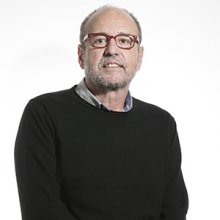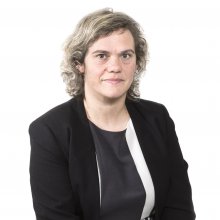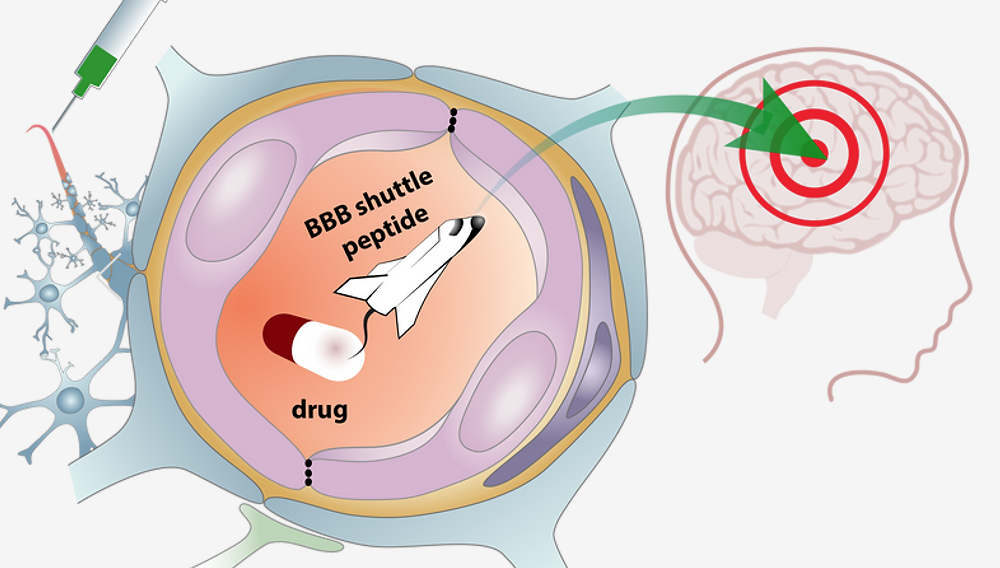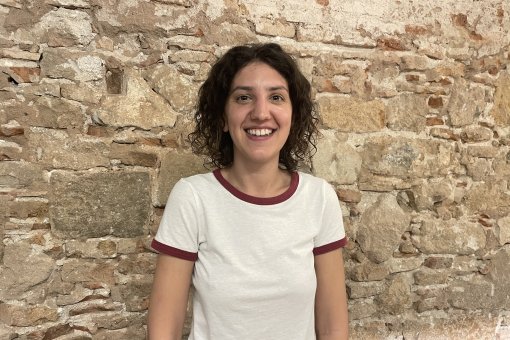Images
Participants



Contact

Born in 1987, Dr. Benjamí Oller-Salvia embarked on an inspiring academic journey. He earned his Bachelor's degree in Chemistry from the IQS (Institut Químic de Sarrià) in 2010. Subsequently, he pursued his passion for Organic Chemistry with a MSc from the University of Barcelona (UB).
His scholarly pursuit reached new heights as he completed his PhD at IRB Barcelona, which was awarded by the University of Barcelona in 2015. During this formative period, he had the privilege of working under the mentorship of Dr. Ernest Giralt.
Today, Dr. Benjamí Oller-Salvia leads the Laboratory of Chemical & Synthetic Biology for Biotherapies at the IQS.
He also serves as an Associate Professor at the same university, where his expertise extends to teaching master’s courses on Advanced Drug Delivery and Biomaterials, along with an undergraduate course on Biocatalysis. His dedication to both research and education is nothing short of inspiring.
"My experience at IRB Barcelona was unique. The first three years of my PhD was a period that I have probably enjoyed the most in my life until now. It was really rewarding."
What is your field of expertise?
In my group, we work on developing chemical and synthetic biology tools to generate biotherapies and tackle the transport across the Blood-Brain Barrier (BBB).
What is the blood-brain barrier?
The BBB is a physiological barrier that separates the brain from the blood. This barrier protects the brain but also prevents drugs from reaching their targets in therapeutically relevant amounts... However, the BBB is also the main gateway for the entrance of nutrients to the brain and is within a very short distance of all neural cells. Therefore, crossing this barrier would enable the efficient delivery of drugs to any part of the brain.

For years you have been fascinated by the blood-brain barrier. Tell us why.
I love challenges and when, at the end of my BSc at IQS, I learned that overcoming the BBB was one of the biggest challenges in drug delivery and the main obstacle to fighting brain diseases, I decided that I would make addressing this challenge one of the main goals of my career.
How did you get into this field?
When I started my chemistry degree, I knew I wanted to build a career in academia. Therefore, in the last year of my BSc, I started looking for a lab to pursue my PhD. Searching on the web and talking to several friends who are scientists, I made a list of a few researchers of reference in Barcelona.
This list included Ernest Giralt, who was then head of the Peptides and Proteins Laboratory at IRB Barcelona. From the moment I met him, I knew I wanted to join his lab to pursue a PhD. I remember his enthusiasm while showing me around IRB Barcelona and explaining the science going on in his lab.
I loved how he conveyed his vision of science. Then he introduced me to Meritxell Teixidó, who was leading the research line on BBB transport in his lab. She was also a great source of motivation. In 2010, I joined IRB Barcelona’s PhD Programme and Ernest became my PhD supervisor, together with Meritxell, who was a Research Associate in the same lab and went on to co-found and become the CEO of the spin-off Gate2Brain.
Your PhD thesis addressed the potential of a component of bee venom as a shuttle to transport drugs across the BBB and into the brain. How did that project come about?
When I started my PhD, we were looking for different sources of brain shuttles (molecules capable of carrying a drug cargo across the BBB), and Meritxell came back from a congress saying that venoms were a big thing of the moment and suggested looking into them.
Venoms are fascinating because they can kill but many components in them can also save people. I liked the idea and I found out that a peptide (apamin) in bee venom had been reported to reach the brain without damaging the BBB.
What is special about venoms in the context of transport across the BBB?
Venoms are highly complex mixtures of compounds. Venoms are unique in that they offer libraries of resistant peptides and other molecules with a range of biological activities. The peptides in venoms are extremely resistant to degradation since most have evolved to do damage. Many peptides are toxic and disrupt the BBB but a few appear to be capable of crossing this barrier without damaging it.
We understand that there is a connection between the spin-off Gate2Brain and your thesis. Can you tell us about it?
Gate2Brain came about from the research line on brain delivery led by Meritxell in Ernest’s lab. One of the key molecules in the company is MiniAp4, a peptide inspired by bee venom that we developed and patented and that became the focus of my thesis. I am proud that there is a company trying to exploit the results of my PhD since I would like my work to have an impact on biomedical sciences and hopefully on society.
You spent 3 years (2016-2019) at the MRC Laboratory of Molecular Biology (LMB) in Cambridge (UK). Tell us about that experience.
It was fascinating. The MRC (Medical Research Council) Laboratory of Molecular Biology (LMB) is an amazing place. This is the institute where the Nobel Laureates Watson and Crick worked. Since then, I believe that 14 people from this centre have won this accolade, two of them during my stay!
In fact, when you are hired as a postdoc you have to choose an MRC mentor, and I asked Greg Winter to be my mentor and two years later he got the Nobel Prize! I talked to him a few times before the announcement of the award. It was very interesting because he did not try to answer any big question but rather he sought to do something that would greatly benefit society.
There, I learned most of what I know about molecular biology and protein engineering from my colleagues in the laboratory led by Jason Chin.
How was your return to Spain?
I returned from the UK in 2019. I got an Assistant Professor position at IQS and I came back with the idea of setting up my own group. It’s not easy at the beginning in the Spanish university system. Research is valued but you have to do it in addition to a high teaching load. I was lucky that Dr. Salvador Borrós, head of the Bioengineering department and current direct at IQS, gave me some space and was supportive in many aspects but I had no funding at the beginning.
...and the process of setting up your own group?
I got a Marie Curie fellowship and this enabled me to reduce my teaching load and have some money for research. Then, I got my first PhD student but then came the pandemic. It was a bad time because we were starting to have some results. But, at the same time, it was a good time to think and to write projects, in parallel to teaching online.
Actually, in the year after the start of the pandemic, we were awarded all the projects we applied for. The funding from ”la Caixa” Foundation and the Spanisg Ministry of Science, Innovation and Universities enabled me to start establishing my group.
You were also awarded an ERC Starting Grant a few months ago. Congratulations! What is your project about?
Yes, that was November last year. And we are now starting the project.
Ernest Giralt once told me that an ERC grants should be my goal at the start of my independent career because it would enable me to pursue research at a different scale (it consists of €1.5 M over 5 years). Getting it was a dream come true!
The first time I applied with a “safe” project. It didn’t work out. So the second time I said, “let’s go crazy now”. I had a new idea about a system for BBB transport that has nothing to do with what has been done to date.
The project is definitely high risk-high gain. Even if we do not achieve the final goal, there is a lot we can learn on the way about how transport at the BBB works. The idea is to engineer the proteins at the BBB to study the transport of natural substances and potentially create a new parallel system to deliver drugs.
...with any particular condition in mind?
This strategy could be applied to many different conditions. But we focus mainly on brain tumours, both metastatic and primary... which have very low survival rates.
Let's go back to your PhD at IRB Barcelona. How do you feel about those times?
My experience was unique. The first three years of my PhD was a period that I have probably enjoyed the most in my life until now. It was really rewarding. I confirmed my passion for science. I met a lot of people who I am still close friends with. I met my early mentor Ernest Giralt. Also, I was quite an introvert and IRB Barcelona helped me to open up and I got involved with the PhD Student Council and organising symposia, among other activities.
My experience at the Institute allowed me to appreciate what was needed to build a career in science.
How important were the training activities you participated in when you were a PhD student?
I learnt a lot in the courses. I think IRB Barcelona was a pioneer in courses for this level of training. At the IQS, a very good training scheme for PhD students is now in place and I am using my experience at IRB Barcelona and in Cambridge to help promote some activities.
Thinking back to your PhD studies, what advice would you give the young people currently at this stage?
Build strong bonds with the community. This may help you grow and it is what sustains you in bad times. If you have friends going through the same things, it helps you push forward.
What is your relationship like now with your young students?
I love mentoring. I still find the time to show some techniques to students in the lab. I like conveying my enthusiasm for science, helping them to plan experiments and to analyse data, and, above all, helping them to grow as people and as scientists. I also want to make sure they enjoy themselves. I want to replicate my own experience as a PhD student!
Tell us about your current group.
Dr. Cristina Díaz, who also did her PhD with Ernest, returned to Barcelona after 3 years in Switzerland and she is now a postdoc in my group, and there are now 3 PhD students plus several master's students and undergraduates.
In September, two more postdoc fellows and five more PhD students (3 funded by the ERC grant and 2 through collaborations with companies) will be joining.
Where can people find out about the positions vacant?
The information is on the group's webpage, LinkedIn, EURAXESS, and other platforms. And I always go back to Sara Martorell at the IRB Barcelona Alumni Office to ask for help to circulate the job offers!
In fact, my first PhD student, who helped me build the lab from scratch, actually got the information from a contact at IRB Barcelona. So networking definitely works!
About IRB Barcelona
The Institute for Research in Biomedicine (IRB Barcelona) pursues a society free of disease. To this end, it conducts multidisciplinary research of excellence to cure cancer and other diseases linked to ageing. It establishes technology transfer agreements with the pharmaceutical industry and major hospitals to bring research results closer to society, and organises a range of science outreach activities to engage the public in an open dialogue. IRB Barcelona is an international centre that hosts 400 researchers and more than 30 nationalities. Recognised as a Severo Ochoa Centre of Excellence since 2011, IRB Barcelona is a CERCA centre and member of the Barcelona Institute of Science and Technology (BIST).



